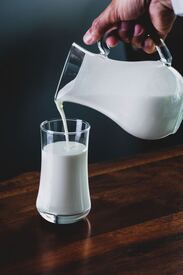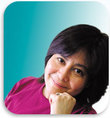 Eiliv-Sonas Aceron Eiliv-Sonas Aceron "There is evidence milk consumption is associated with heart disease, cancer, obesity, antibiotic residue, iron deficiency, asthma, ear infections, skin conditions, stomach aches, bloating and diarrhea." Western medicine focuses mainly on treating disease, illness and unhealthy conditions. Not as much emphasis has been placed on cause or prevention. In 1977, the McGovern report studied the rising costs and causes of cancer and cardiovascular disease because the government was concerned about the sustainability of the health care system. The report concluded sustainability was not possible unless the causes of these conditions were handled. The report concluded the basic underlying cause was the unhealthy American diet, and unless change occurred, our healthcare system would go bust. Change is occurring in this area as people get more access to information about diet, exercise, supplementation and stress management. However, there is still confusion as to the best program for healthy living. The following points are from an article reviewing scientific studies examining the relationship of bone health to diet.
Dr. John McDougall feels the primary cause of osteoporosis is the high protein American diet and not calcium deficiency. Dr. Shinya, developer of the colonoscopy and author of “The Enzyme Factor,” believes excessive protein intake causes increased acidity in the blood, which the body neutralizes with calcium, usually taken from skeletal bone. This can contribute to bone loss and osteoporosis. He also believes improper balance of calcium and magnesium can lead to arteriosclerosis and increased blood pressure. He advocates a ratio of 2:1 for calcium:magnesium. He also feels a calcium deficiency can occur with a diet high in animal protein and refined sugar, and may contribute to hyperactivity and attention deficit disorder in children. Recommendations for strong bones from Dr. Tel-Oren include:
From the ancient medical text the NeiJing written during the Yellow Emperor’s time in China, our best prevention and guarantee of good health is monitoring activities in our daily life, which means we must pay attention to what we eat, how we move and use our bodies, our mental outlook and how we interact with others. Most authors of healthy living books are recommending a plant-based diet (50-85%), eating organic when possible to reduce exposure to toxins, drinking 5-6 glasses of water daily, exercising 20 minutes to 2 hours per day, including cardiovascular or aerobic exercise such as walking, strengthening exercise using weights or resistive cords or weight machines, and flexibility exercise such as stretching and yoga, plus keeping a positive mental outlook such as a sense of humor, love, compassion, patience and tolerance. We all have the ability to improve our own health and to help ourselves in reaching optimum health.
0 Comments
Your comment will be posted after it is approved.
Leave a Reply. |
Sheila’s BlogI focus on the topics you care about most. Categories
All
Archives
February 2022
|
|
55 S. Raymond Ave. Suite 100
Alhambra, CA 91801 Main Phone: (626) 576-0591 Alternate Phone: (626) 538-3966 Fax: (626) 576-5890 Email: yonemotoptfinance@gmail.com |
© 2015 Yonemoto Physical Therapy. ALL RIGHTS RESERVED.
|


 RSS Feed
RSS Feed